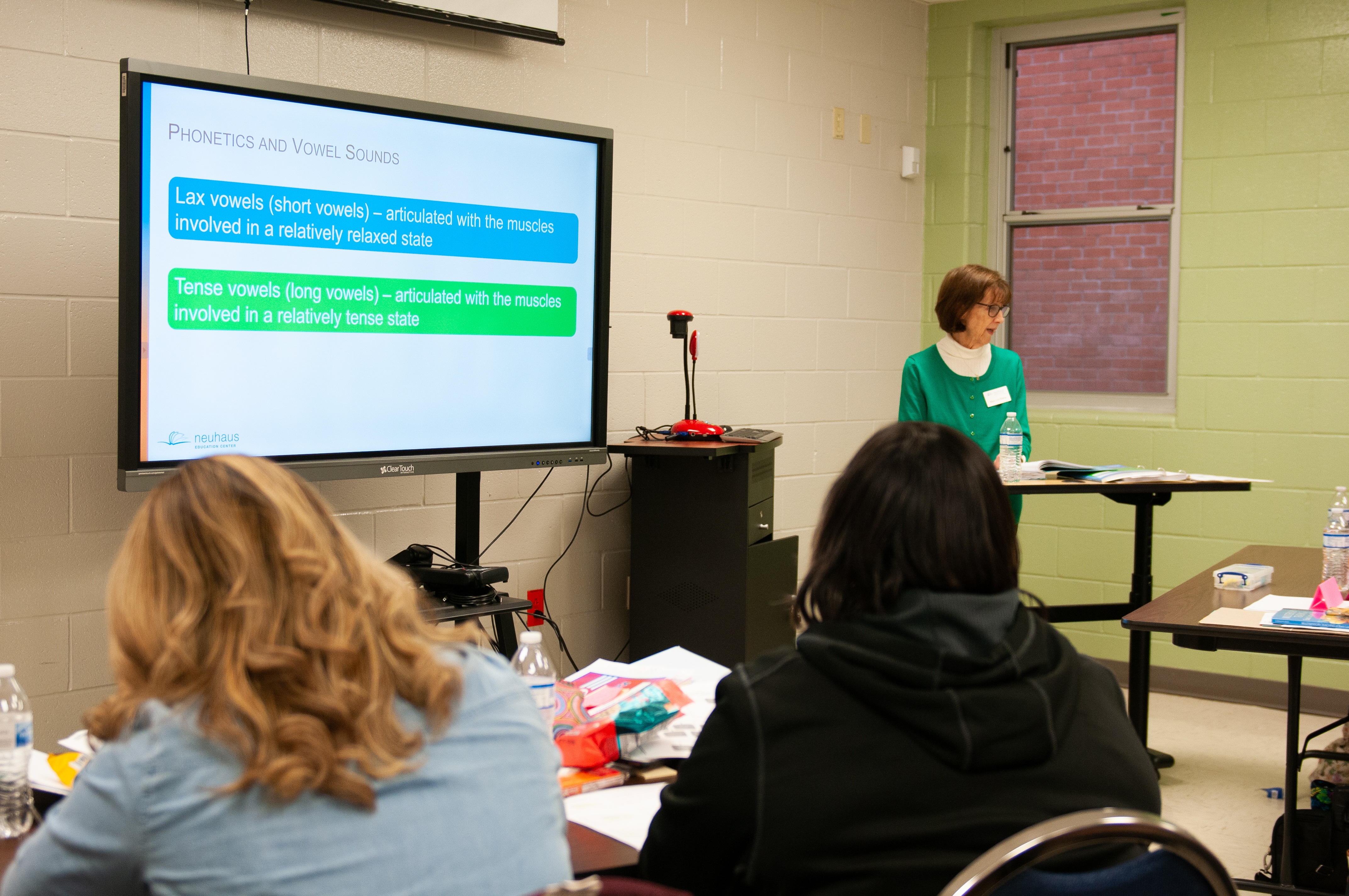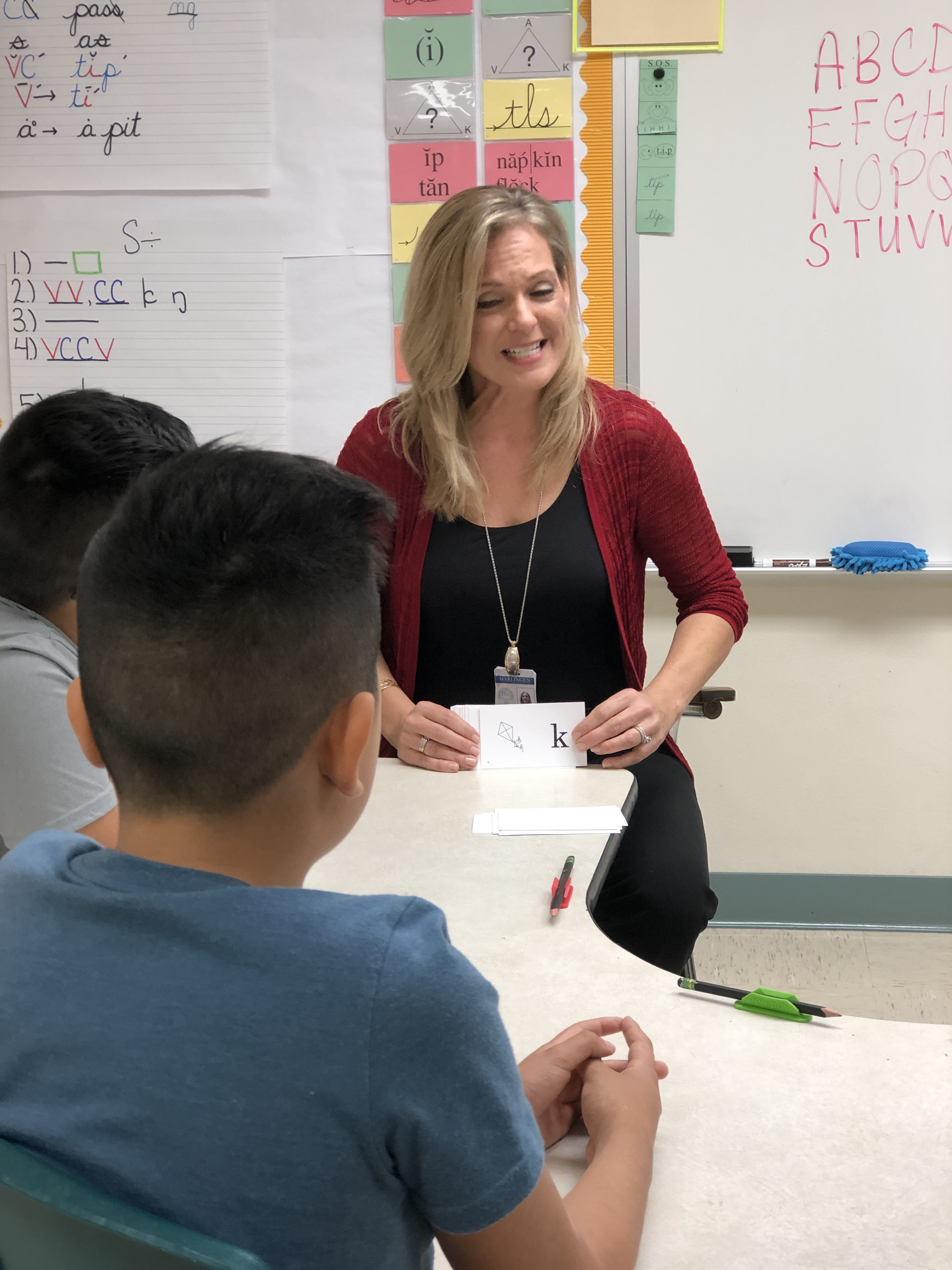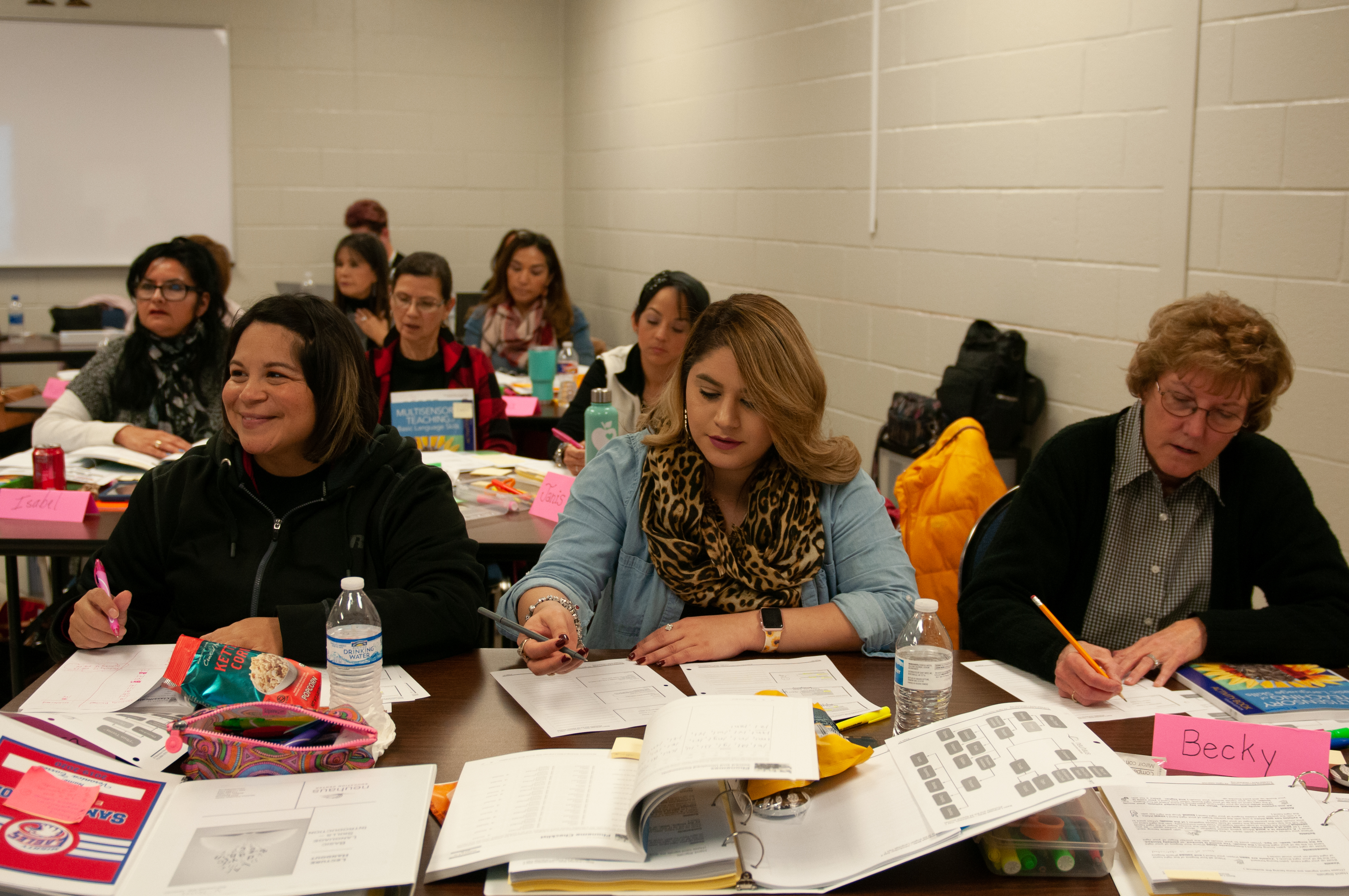Harlingen CISD expanded its dyslexia program this school year to include additional teaching techniques that benefit children diagnosed with dyslexia, a learning disability.
Educators teaching students with dyslexia spent last week learning from specialists with the Neuhaus Education Center, a non-profit organization working in partnership with Harlingen CISD.
In a classroom setting, teachers underwent rigorous training intended to inform educators of research-based techniques that are proven to benefit children diagnosed with dyslexia. Across the state, about 8-to-10 percent of school children are diagnosed.
Harlingen CISD provided teachers the opportunity to attain additional certifications as dyslexia practitioners or academic language therapists, according to the district’s dyslexia specialist Shannon Reyna.
“Not every district has these resources for students with dyslexia,” Reyna said, adding that the partnership with Neuhaus is an exciting step toward reaching children with the learning disability.
Harlingen CISD committed to placing dyslexia teaching specialists at every elementary school campus to reach all students. Those educators solely teach students with the disability and are not required to teach in a traditional classroom setting.
Typically, students identified as having dyslexia “experience primary difficulties in phonological awareness,” according to a handbook provided by the Texas Education Agency. Characteristics may appear at an early age and may include difficulty reading words in isolation, trouble decoding words, slow or inaccurate oral reading, and spelling difficulties.
By screening children at an early age, Harlingen CISD has committed to improving the classroom experience for children who are diagnosed.
“Children with dyslexia have adequate or above intelligence,” said Reyna. “By the time they are in high school, many of our students with dyslexia are at the top of their classes and on our billboards across the city.”
A dyslexia diagnosis allows teachers to intervene and provide quality education tailored to meet the individual needs of all children.
“Our students with dyslexia are very talented, and they do very well when they receive the therapy,” Reyna said. “When we begin providing therapy at an early age, they’re ready to begin middle and high school.”
For Stuart Place Elementary teacher Jennifer Esparza, teaching students with reading difficulties has been her passion.
“I want to see children succeed,” she said after providing small-group instruction to four students diagnosed with dyslexia. “I want to see them read for a lifetime of learning and improve their reading ability to succeed now and in the future.”
She advises parents to become advocates for their children.
Parents of Harlingen CISD students may request a dyslexia screening for their child by contacting their child’s campus staff.
Additionally, Harlingen CISD screens students beginning in Kindergarten.
In elementary school, the dyslexia teaching specialists work with students from Kindergarten through 5th grade throughout the school day. The group attends therapy for about 45 minutes to an hour, four days a week.
By middle school, students are transitioned to a hybrid program through Language! Live. The program provides “comprehensive literacy strategies that combine foundational and advanced learning skills with digital and teacher-led reading intervention to significantly improve literacy skills,” according to the program’s website.
“Once they are in middle and high school, they have the skills they need to be good readers,” Reyna said. “They earn high scores on the STARR. They do well on the SAT and the ACT.”
Harlingen CISD provides all its graduating students diagnosed with dyslexia a roadmap for success, which includes a plan on how to succeed in college, their career, or in the military.
The plan serves as a resource and includes information about accommodations that graduates may request while attending universities and colleges.
One accommodation includes audiobooks for students diagnosed with dyslexia. Audiobooks allow students to listen to almost any book, including science books and novels, read aloud by the narrator.
Harlingen CISD provides its students with the reading disability access to 750,000 audiobooks at no cost. The district continues providing students access to audiobooks through their college and university careers.
“Our kids really enjoy their therapy time,” Reyna said. “They look forward to it, and it’s extremely rewarding to see their improvement and success as they grow.


